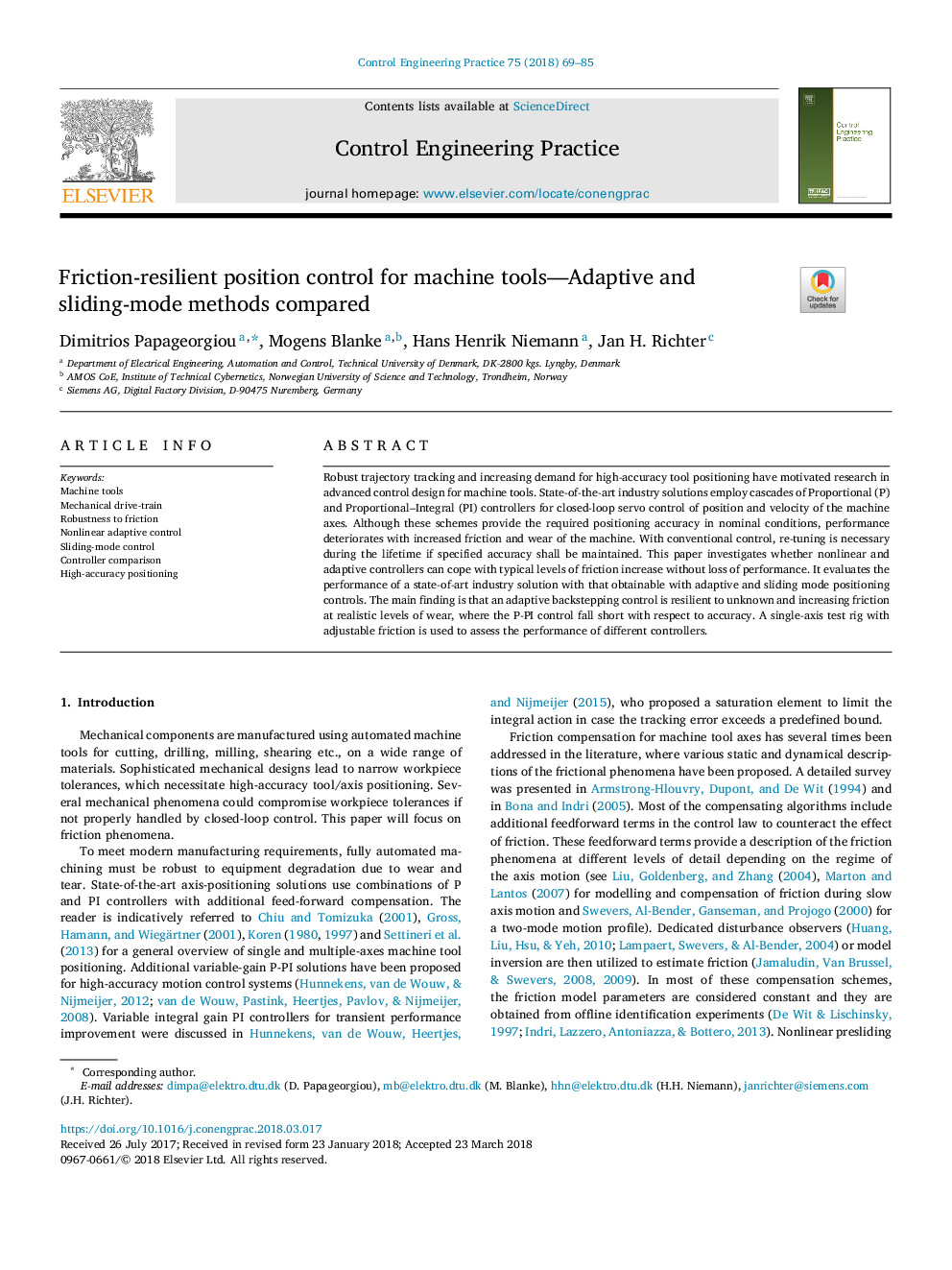| Article ID | Journal | Published Year | Pages | File Type |
|---|---|---|---|---|
| 7110304 | Control Engineering Practice | 2018 | 17 Pages |
Abstract
Robust trajectory tracking and increasing demand for high-accuracy tool positioning have motivated research in advanced control design for machine tools. State-of-the-art industry solutions employ cascades of Proportional (P) and Proportional-Integral (PI) controllers for closed-loop servo control of position and velocity of the machine axes. Although these schemes provide the required positioning accuracy in nominal conditions, performance deteriorates with increased friction and wear of the machine. With conventional control, re-tuning is necessary during the lifetime if specified accuracy shall be maintained. This paper investigates whether nonlinear and adaptive controllers can cope with typical levels of friction increase without loss of performance. It evaluates the performance of a state-of-art industry solution with that obtainable with adaptive and sliding mode positioning controls. The main finding is that an adaptive backstepping control is resilient to unknown and increasing friction at realistic levels of wear, where the P-PI control fall short with respect to accuracy. A single-axis test rig with adjustable friction is used to assess the performance of different controllers.
Related Topics
Physical Sciences and Engineering
Engineering
Aerospace Engineering
Authors
Dimitrios Papageorgiou, Mogens Blanke, Hans Henrik Niemann, Jan H. Richter,
